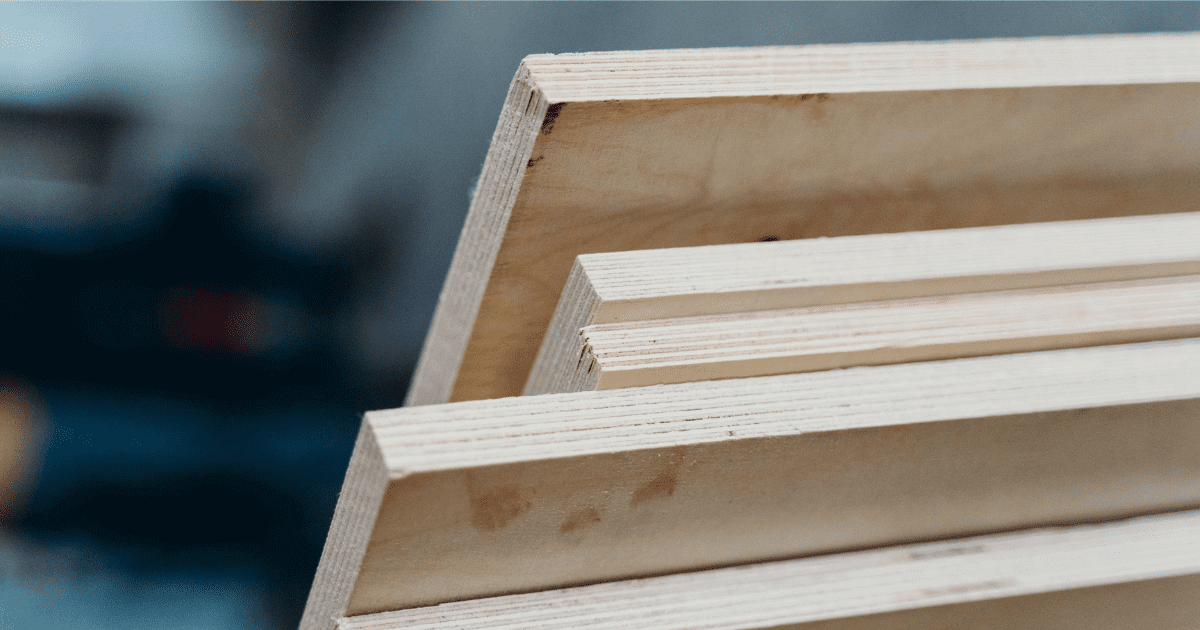Birch plywood is very strong and stable and is used for many applications such as millwork, furniture, cabinets, and flooring. But wait, birch plywood is not perfect for all application situations. So, before using Birch plywood, you should know more about it, which can save both your money and time.
Birch plywood is made from thin layers of birch wood veneer that are glued together with good-quality adhesives. In this process, several layers of these veneers are placed perpendicular to each other with the grain of the wood of adjacent layers. This cross-graining increases the strength and stability of the plywood.
Birch wood comes from birch trees, which are deciduous trees belonging to the genus Betula. There are many species of birch trees, and they are found in various parts of the world, particularly in temperate and boreal regions of the Northern Hemisphere. Some common species of birch include the silver birch (Betula pendula), white birch (Betula pubescens), and paper birch (Betula papyrifera).
Birch Plywood Uses
Birch plywood is versatile and commonly used for Furniture Construction, Cabinetry, Interior Design, Building Construction, and Crafting.
Pros of Using Birch Plywood
These are some of the benefits of using Birch Plywood which help you in choosing Birch Plywood.
Durability and Stability
One of the primary advantages of Birch plywood is its durability and stability. Unlike ordinary plywood made from softwood veneers, that plywood can last for a few years. But birch plywood can withstand everyday wear and tear and can be repaired if necessary. It is resistant to bending and warping over time.
Versatility
Birch plywood can be used in various projects and purposes. From the furniture to the structural/industrial applications, birch plywood furniture looks great in any setting.
Appearance
Birch plywood has an attractive light reddish brown appearance, with a straight wood grain, that fits all types of room furniture.
Easy to work with
Birch plywood is easy to work with hand and machine tools, making it a popular choice among woodworkers, carpenters, and DIY enthusiasts.
Wide Options
Birch plywood comes in a variety of thicknesses, sizes, and grades. So we have many options to choose from depending on your intended use.
Cons of Using Birch Plywood
Along with the advantages of Birch Plywood, there are also some disadvantages that you should know. So that you can choose the right material.
Cost
One of the biggest disadvantages of birch plywood is the price. Birch plywood is often more expensive than ordinary plywood. However, the higher cost is usually justified by the durability and longevity of the birch plywood.
Baltic Birch Plywood
Whenever we talk about birch plywood, we also hear the name of Baltic birch plywood somewhere. Baltic Birch plywood is a specific type of plywood that is known for its high quality and exceptional durability. It is made from the wood of the Baltic birch tree, which is found in the Baltic region, primarily in Russia and Finland.
The main difference between standard birch plywood and Baltic birch plywood is that Baltic birch has thicker veneers and fewer voids. Baltic birch is suitable for heavy-duty projects.
On the other hand, standard birch plywood has thinner veneers, is more prone to voids, and is recommended for projects where painting or maintaining the finish is preferable.
What is Laminated Birch Plywood?
Laminated birch plywood is covered with moisture-resistant films on the outer layer. Which makes it highly moisture resistant; such plywood is used for construction projects.
What is Prefinished Baltic Birch Plywood?
Prefinished Baltic Birch Plywood refers to plywood that has been coated with a finish or protective layer before being used. The main reason for performing the finishing process is to enhance the plywood’s appearance, durability, and overall performance.
What is Russian Birch Plywood?
Russian birch plywood refers to a type of plywood that is made from birch trees found in Russia. It is known for its high quality, strength, and fine-grained structure. Russian birch plywood is highly regarded in the woodworking and construction industries for various reasons.
Frequently Asked Questions About Birch Plywood
Is Birch Plywood Waterproof?
Birch Plywood is not fully waterproof, but it is water-resistant and can be used for interior and exterior projects.
Is Birch Plywood a Hardwood?
Yes, birch plywood is considered hardwood, as it is made from veneers of birch (a hardwood species).
Is Birch Plywood Good for Outdoors?
Yes, birch plywood can be used for outdoor purposes, but it is not the best choice for outdoor applications without proper treatment. Birch plywood is more susceptible to damage from prolonged exposure to moisture and environmental elements compared to outdoor-grade plywood.
Is Birch Plywood Toxic?
Birch plywood is not toxic; it is completely safe to use as it is made of natural birch wood.
Is Birch Plywood Better Than MDF?
Generally, Birch plywood is known for its strength and durability. Birch plywood can withstand some level of moisture without warping. On the other hand, MDF is less structurally stable than birch plywood. It can be more prone to damage from water and does not hold screws or fasteners as well as plywood.
Is Birch Plywood Better Than Marine Plywood?
No birch plywood is not better than marine plywood because Marine plywood is specifically manufactured to have excellent moisture resistance. It is designed to withstand exposure to water, making it suitable for marine applications.
On the other hand, Birch plywood is suitable for interior applications but is not ideal for prolonged exposure to moisture.
Is Birch Plywood Cheap?
Birch plywood is more expensive than standard plywood and MDF but cheaper than marine-grade plywood.
Is Birch Plywood Good for Furniture?
Yes, Birch plywood is an excellent choice for interior furniture.
Can You Stain Birch Plywood?
Of course, you can stain and paint birch plywood; this extends the life of the plywood.
Read more: Sande Plywood vs Birch plywood

